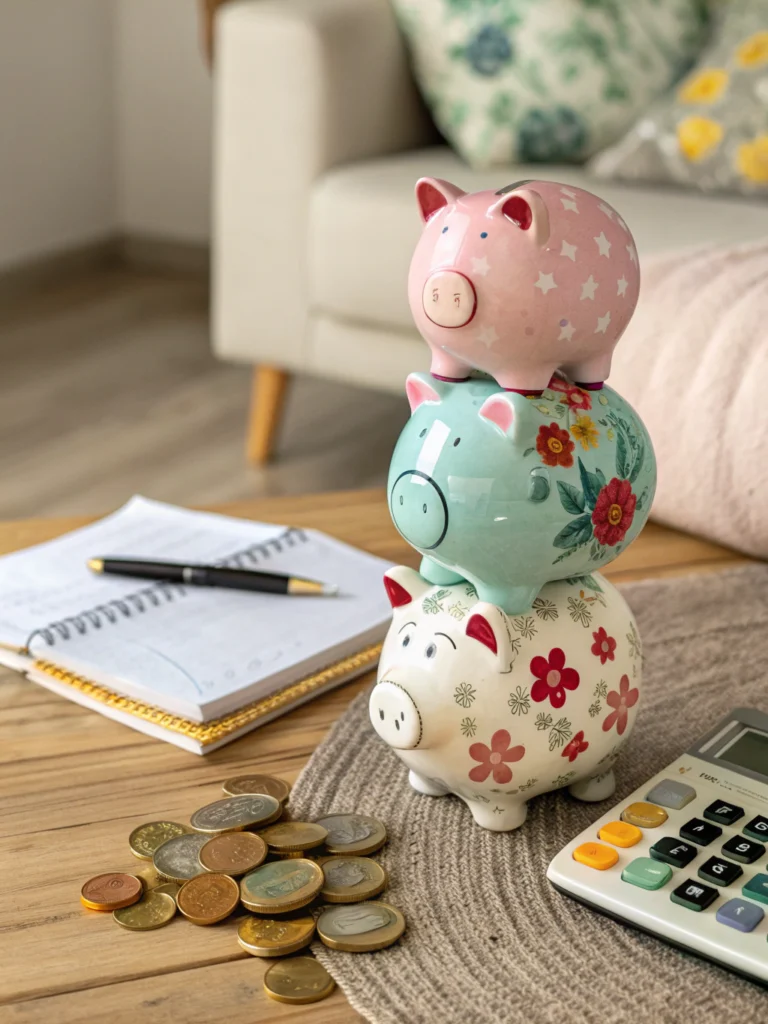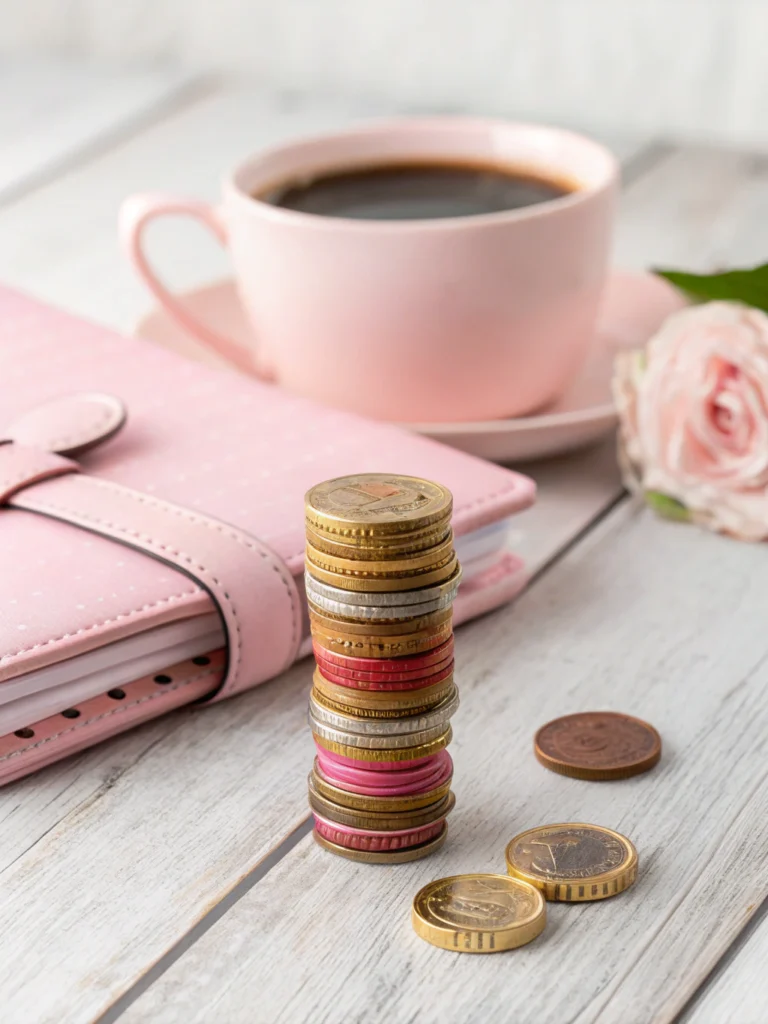Let’s get real for a second: when you hear the word “frugal,” what pops into your head? Someone clipping coupons at 6 AM? Maybe reusing tea bags three times? Or perhaps your uncle who refuses to turn on the heat even in January? Yeah, I get it. Being frugal has gotten a bad rap over the years, but here’s the thing—it’s not about being cheap or living like you’re stuck in survival mode. It’s actually one of the smartest money moves you can make, and I’m here to spill the tea on what it really means, the good stuff, the struggles, and how it can actually transform your bank account (and life) for the better.
Table of Contents
No time to read the whole post?
Here’s the quick recap: Being frugal isn’t about being cheap—it’s about being intentional with your money. It means prioritizing what truly matters, cutting unnecessary expenses, and making smart financial choices. The benefits? More savings, less stress, and financial freedom. The challenges? It takes discipline, and people might not get it. But when done right, frugal living helps you build wealth, reduce debt, and live more aligned with your values. This post breaks down the truth behind frugality, busts some myths, and shows you how to save smarter without feeling deprived.
What Does Being Frugal Actually Mean?
First things first—let’s clear up the confusion. Being frugal doesn’t mean you’re hoarding every penny like Scrooge McDuck. It’s not about deprivation or never enjoying anything. Frugality is all about intentional spending. It means you’re mindful about where your money goes and you prioritize what genuinely adds value to your life.
Think of it this way: a cheap person buys the lowest-quality item to save a few bucks now, even if it’ll break next month. A frugal person? They’ll invest in quality when it matters, skip the stuff they don’t need, and find creative ways to save without sacrificing what’s important.
Frugal living is strategic. It’s about asking yourself, “Do I really need this?” before every purchase. It’s meal planning instead of ordering takeout five nights a week. It’s choosing experiences over stuff. It’s recognizing that your money is a tool—not something to burn through mindlessly.
And here’s the kicker: frugality isn’t a one-size-fits-all deal. What works for someone else might not work for you, and that’s totally fine. Some people go all-in with extreme couponing and DIY everything. Others just focus on cutting a few big expenses like housing or transportation. The beauty of being frugal is you get to customize it to fit your life.
The Real Benefits of Being Frugal
Okay, so why should you even care about being frugal? What’s in it for you? Spoiler alert: a whole lot more than just a fatter savings account (though that’s definitely a perk).
You Actually Build Wealth
Let’s talk numbers. When you practice Frugal Living, you’re not just saving a few bucks here and there—you’re creating real financial momentum. Those daily $5 lattes? That’s $1,825 a year. The subscription services you forgot about? Another few hundred down the drain. When you start plugging these money leaks, the savings add up fast. And when you redirect that money into savings, investments, or paying off debt, you’re literally building wealth while you sleep.
Less Financial Stress, More Peace of Mind
Money stress is real, and it’s brutal. According to various surveys, financial worries keep more people up at night than almost anything else. When you’re frugal, you gain control over your finances instead of feeling like they control you. You’re not living paycheck to paycheck. You’ve got an emergency fund. You can handle unexpected expenses without having a meltdown. That kind of security? Priceless.
Freedom to Make Better Life Choices
Here’s something people don’t talk about enough: being frugal gives you options. Want to switch careers but the new job pays less initially? Frugal living makes that possible. Dreaming of taking a sabbatical to travel or pursue a passion project? Your savings cushion can make it happen. When you’re not drowning in debt and unnecessary expenses, you get to make choices based on what you want, not just what pays the bills.
You Become More Intentional About Everything
Once you start questioning your spending habits, something interesting happens—you start questioning other areas of your life too. You become more mindful about how you spend your time, who you spend it with, and what truly makes you happy. Frugality isn’t just a money thing; it’s a whole mindset shift toward living with purpose.
Environmental Impact (Bonus!)
Plot twist: being frugal is actually pretty eco-friendly. When you buy less stuff, reuse items, repair instead of replace, and avoid fast fashion, you’re reducing waste and your carbon footprint. Saving money AND saving the planet? Win-win. 🙂
The Challenges Nobody Talks About
Alright, let’s keep it 100—being frugal isn’t always sunshine and rainbows. There are some genuine challenges that come with this lifestyle, and pretending they don’t exist won’t help anyone.
People Will Judge You
Yep, this is a thing. When you start declining expensive dinners, suggesting budget-friendly hangouts, or explaining why you’re not buying the latest gadget, some folks won’t get it. They might think you’re cheap (even though there’s a difference). They might not understand why you’re “sacrificing” when you could just swipe that credit card. And honestly? That can be frustrating. But remember: your financial future is more important than someone else’s opinion about your spending habits.
It Requires Discipline and Patience
Let’s be honest—living frugally takes effort. You can’t just coast on autopilot. You have to plan meals, compare prices, resist impulse buys, and stay committed even when everyone around you is spending freely. It’s a marathon, not a sprint. Some days you’ll nail it, and other days you’ll blow your budget on something dumb (we’re all human). The key is staying consistent over time.
FOMO is Real
Fear of missing out hits different when you’re trying to save money. Your friends are booking that expensive vacation, your coworker just got the newest phone, and Instagram is constantly showing you stuff you “need.” It’s tough to stay focused on your goals when it feels like everyone else is living their best life without worrying about money. But here’s a secret: a lot of those people are drowning in debt. Your frugal choices today are setting you up for actual financial freedom tomorrow.
Finding the Balance is Tricky
One of the hardest parts of being frugal is figuring out where to draw the line. You don’t want to be so restrictive that you’re miserable, but you also don’t want to slip back into old spending habits. It’s a constant balancing act between enjoying life now and securing your future. And honestly, you’ll probably mess it up sometimes—and that’s okay. The goal isn’t perfection; it’s progress.
How Being Frugal Helps You Save Smarter
So how exactly does being frugal translate into actual savings? Let’s break down some practical ways frugal living puts money back in your pocket.
You Stop Wasting Money on Stuff You Don’t Need
This is the big one. Most of us spend money on autopilot—subscriptions we don’t use, clothes we never wear, food that goes bad in the fridge. When you adopt a frugal mindset, you become hyper-aware of these money drains and cut them out. The result? Instant savings without feeling deprived.
You Get Better at Finding Deals
Frugal people are basically deal-hunting ninjas. They know when sales happen, how to stack coupons, where to find discount codes, and which cashback apps actually work. Over time, this becomes second nature, and you end up paying significantly less for the same stuff everyone else buys at full price.
You Prioritize High-Impact Savings
Instead of trying to save pennies everywhere, experienced frugal folks focus on the big stuff—housing, transportation, and food. These three categories eat up the majority of most people’s budgets. By optimizing even one of these (like downsizing your living space, driving a reliable used car instead of leasing new, or cooking at home), you can save thousands per year.
You Build Systems That Save Automatically
Being frugal isn’t about white-knuckling your way through every purchase decision. Smart frugal people set up systems—automatic transfers to savings, meal planning routines, capsule wardrobes, budget apps that track spending. These systems remove the daily decision fatigue and keep savings on autopilot.
You Avoid Lifestyle Inflation
Here’s a trap most people fall into: they get a raise and immediately upgrade their lifestyle to match. Bigger apartment, fancier car, more expensive habits. Frugal folks resist this temptation. When their income goes up, their expenses stay roughly the same, and the difference goes straight to savings or investments. This is how you actually build wealth over time.
Common Myths About Being Frugal (Busted!)
Let’s clear up some misconceptions that give frugality a bad name.
Myth #1: Frugal People Never Have Fun
Wrong. Frugal people have plenty of fun—they just don’t equate spending tons of money with enjoyment. Free concerts in the park, potluck dinners with friends, hiking adventures, game nights—these can be just as fulfilling (or more) than dropping $200 at a fancy restaurant.
Myth #2: You Have to Be Extreme to See Results
You don’t need to live in a tiny house, grow all your own food, or make your own toothpaste (unless you want to). Even moderate frugality—like packing lunch three times a week or canceling unused subscriptions—makes a noticeable difference.
Myth #3: Being Frugal Means Being Cheap
Nope. Cheap people prioritize low cost above everything, even quality and ethics. Frugal people prioritize value. They’ll spend on what matters and save on what doesn’t. Big difference.
Myth #4: It’s Only for People Who Are Broke
Actually, many wealthy people are frugal. Warren Buffett still lives in the house he bought decades ago. Frugality isn’t about how much you have—it’s about respecting your money and making intentional choices.
Wrapping It Up
So here’s the honest truth: being frugal isn’t glamorous, and it’s not always easy. It requires discipline, patience, and sometimes making choices that others won’t understand. But it’s also one of the most empowering things you can do for your financial future.
You’ll save more money, stress less about bills, gain freedom to make life choices based on your values, and build actual wealth over time. Yeah, there’ll be challenges—judgmental friends, FOMO moments, and the occasional slip-up. But if you stay consistent and remember why you started, the payoff is absolutely worth it.
So, what do you think? Ready to ditch the misconceptions and give frugal living a real shot? Trust me, your future self (and bank account) will thank you. And hey, you might actually enjoy the journey more than you expect. 😉
Start small, stay consistent, and watch what happens. You’ve got this!






